For most Canadians, the home they own is the biggest asset they have. In some cases, it may be their only asset. This means that if you need to access extra funds for things like home repairs, renovations, or other investments, you may consider using your home as leverage in order to get a loan to access the equity in your property.
Using your home’s value to access funds is known as unlocking the value or equity in your home. Home equity is the difference between what you still owe on your home and what the home is currently valued at. As you pay down your mortgage, you own a larger and larger share of your home and build up equity. You can access this by increasing a traditional mortgage through refinancing or by setting up a HELOC.
HELOC
Building home equity doesn’t just mean you’re closer to paying off your home; it means you’re growing your own financial freedom. With a home equity loan, you can use the equity you’ve built up to borrow money in a cost-effective way. It’s a simple and low-risk way to take advantage of your own hard work.
Mortgage Connection is here to give you all the answers you need. We’re happy to show you what your borrowing options are and help you choose what’s right for you.
The Home Equity Loan ProcessM
Step 1: Meet with a Mortgage Broker
First, we need to know what your goal is and what sort of equity you already have in your home. We’ll take a look at your current mortgage, ask you some questions about what you’d like to accomplish, and help walk you through the next steps from there.
Step 2: Submit an Application
You’ll need to qualify again as if you were applying for a new mortgage. We’ll take you through the application, help choose the best lender and mortgage product for you, and gather the necessary paperwork. We might also have your home appraised to determine its current value.
Step 3: Approval and Funding
Once you’ve been approved, it’s time to connect with a lawyer to finalize the paperwork. You can choose the lawyer yourself, or use a title company assigned by the lender. Regardless of who you choose, your lawyer or title company will make sure your current lender is paid, your new lender is added to the title, and that any and all other conditions have been met.
What happens next is your call. You could have the lawyer simply give the proceeds to you to use however you like, or you could have the lawyer put the proceeds towards some debts. If you’ve opened a HELOC (Home Equity Line of Credit), your lender may provide cheques, or debit cards to access the available funds for future use.
What You Need to Qualify
To qualify for any type of home equity loan you need to have a good credit history. You will also need to have your home appraised so that you can determine how much your home is currently worth. Appraisal costs will have to be covered by you, as will the cost of any legal advice you may want to get before considering a home equity loan. However, these costs are fairly minor when you consider the amount of money you can borrow against your home’s equity.
Before you commit to a home equity loan you should always seek out financial advice from a trusted source so that you can ensure your plan is suitable based on your financial situation.
It’s your home, you should be able to use it to your advantage. HELOCs or simply increasing a traditional mortgage is a good way to access funds by levering your primary asset, so they are well worth considering if you find yourself in need of funds. A mortgage is certainly the most cost effective financial tool to use to borrow money.
If you have any questions about home equity loans you may want to consider speaking to your mortgage broker. They will be able to help you determine if a home equity loan is the right financial move for you.




